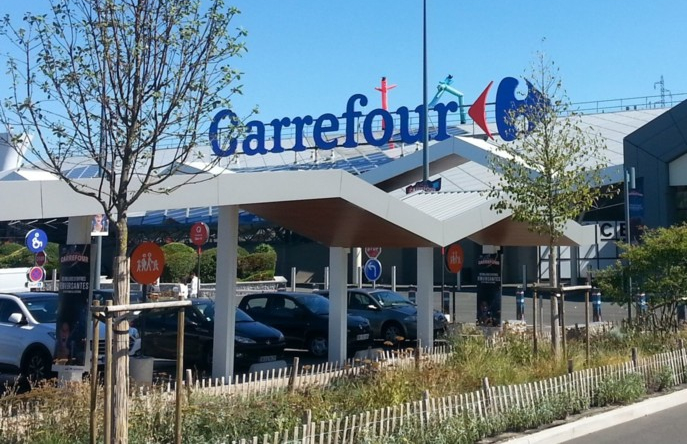Economy and business
The giant Carrefour deletes PepsiCo from its shelves

Products of some famous brands are now unavailable in Carrefour supermarkets in France, and this is part of an attempt on the one hand to fight inflation and on the other to give the French chain a positive price image.
The retail group decided to remove from its shelves all products of American PepsiCo, which produces well-known brands such as Pepsi and 7UP, because it judged the multinational company’s increases to be unjustified at the end of a negotiation that ended badly.
The method may seem brutal, but it is not unprecedented. It is part of the fairly regular tensions between large retailers and manufacturers, but in this case, the game appears much more serious. Usually these strategies last a short time—a few weeks at most—but it is not certain that the distribution group does not want to make an example of these drinks for all producers.
Aggressive communication on the shelves
There is no shortage of examples. Rainett cleaning products were phased out of the shelves of Leclerc, Carrefour, Intermarché, and Casino in 2022, with no new orders placed once stocks were exhausted. Last summer, Ricard bottles were gradually withdrawn from Leclerc stores. The same happened in September in some Intermarché stores for Evian, Badoit, and Volvic waters, owned by the Danone Group.
Each time, aggressive posters were put up in front of empty shelves, accusing the manufacturer of demanding unsustainable price increases at the expense of consumers. In a slightly different genre, but with the same philosophy, Intermarché attacked Findus, Knorr, and Le Petit Marseillais last November for “shrinkflation,” which is reducing the quantity of a product without lowering its price, again with posters on the shelves.
The government intervened, making the situation worse.
This year, things are made particularly complicated because the French government has intervened by changing the timeframe for concluding commercial contracts, making negotiations very short by law, according to leaks from agribusiness operators.
The shortening of the timeframe for reaching an agreement—until January 15 instead of March 1 for smaller companies and until January 31 for large groups—means that discussions are automatically tighter. “If before there were up to 12 rounds of negotiations with each retailer, now we will only have three or four,” says a small food company that wishes to remain anonymous.
The shorter timeframes have then clashed harshly with, on the one hand, the desire of commercial retailers to improve their margins in the face of increased distribution costs, and on the other hand, the industry, which has found itself needing to raise prices to meet its own cost increases. There are products, such as chocolate and olive oil, whose international prices have required significant increases. Little time and conflicting interests have led to incidents such as Pepsic.






